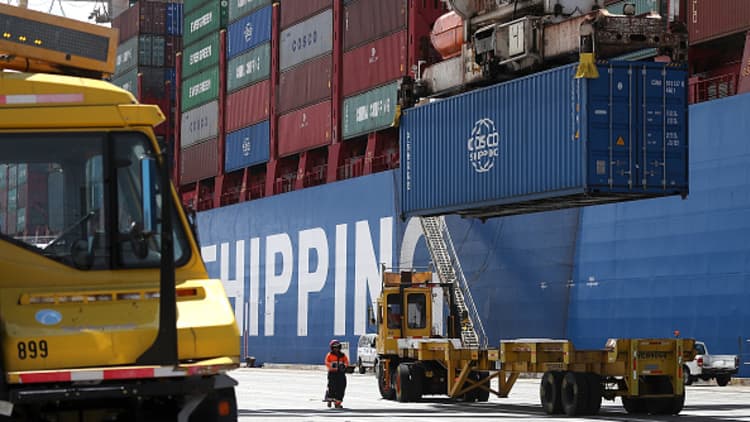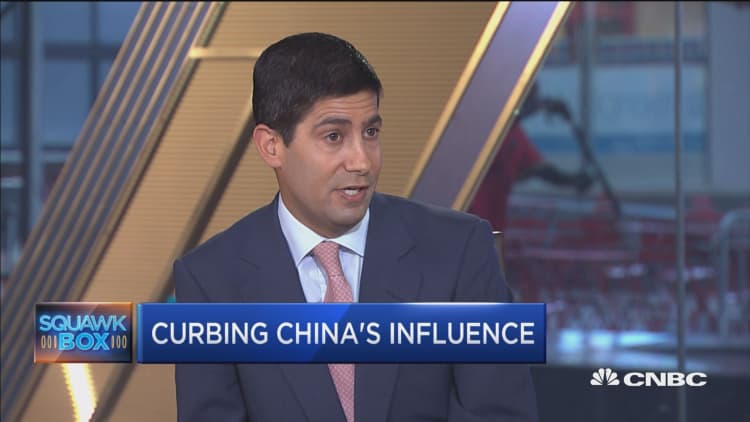
The deteriorating relationship between the world's two biggest economies is at a possible tipping point into a cold war, John Rutledge, a principal architect of Ronald Reagan's economic plan, told CNBC on Friday.
"The single biggest question for the future safety of my children is whether China and the U.S. end up as friends or enemies," said Rutledge, now chief investment officer at the Safanad global investment firm. He has also advised leaders in the Chinese government.
The U.S. and China are currently locked in a trade war, with accusations flying on both sides. Most recently, President Donald Trump's administration levied tariffs on $200 billion worth of goods from China, prompting Beijing to put tariffs on $60 billion worth of U.S. goods.
"I have literally been there 100 times, trying to do things to bring communications together between these two places," Rutledge told "Squawk Box." "It's going the wrong way now; the wrong way here, with our own issues, but it's going the wrong way in China too, with rise of [Chinese President Xi Jinping] and his power base."
On Wednesday, Commerce Secretary Wilbur Ross told Fox News that U.S.-China trade talks are on hiatus. And then on Thursday, Larry Kudlow, Trump's top economic advisor, told CNBC that China "has not responded positively" to any of the proposals being put forth by the U.S. He did not elaborate.
"What I keep hoping for is people to get to know each other well enough so they can actually try to sit down and sort things out," said Rutledge. "The cost of not getting along is higher. And the danger of not getting along is higher."
On Friday, China reported slowing economic growth in the third quarter of 6.5 percent, missing expectations and lower than the 6.7 percent expansion in gross domestic product there in the previous quarter.
By comparison, the U.S. economy advanced 4.2 percent in the second quarter. Next week's release from the Commerce Department is expected to show a GDP gain of 3.3 percent, according to the CNBC Rapid Update estimates.
While slowing, the Chinese GDP numbers are high and "masking a much bigger problem," Rutledge said. "The owners of businesses that I know and investors in China are deciding that the trade war with the U.S. is morphing into a longer-term cold war of sorts, and that it's not going to go away when the tariffs go away, if they do."
Rutledge was using the term "cold war" to mean an economic standoff, not the decades-long "mutually assured destruction" nuclear stalemate between the U.S. and Russia that began to thaw in the detente period that led to the fall of the Berlin Wall in 1989.
Earlier this month, former Federal Reserve governor Kevin Warsh was among others who have made that same comparison, asking in a CNBC interview, "Could we be at the beginning of a 10- or 20-year cold war? That has huge implications for the economy."
"Five or 10 years from now we might see two poles: a Chinese-centric world and an American-centric world. And the [other global] economies and countries will have to plug into one or both," said Warsh, who had been on Trump's short list for Fed chairman before Jerome Powell was chosen.
WATCH: US appears at 'precipice of brand new relationship' with China




